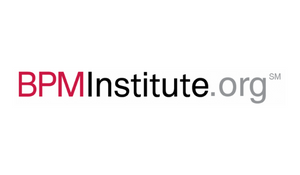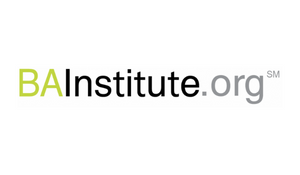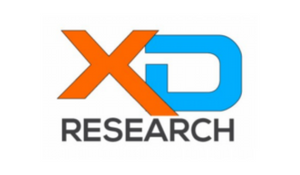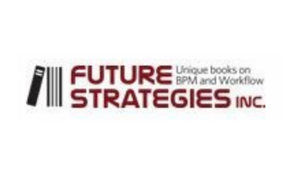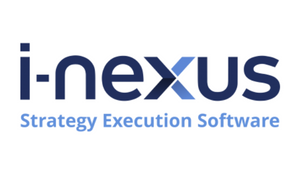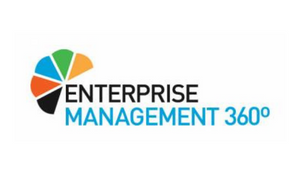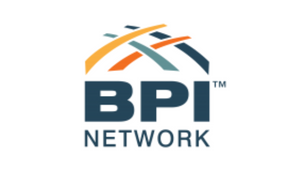
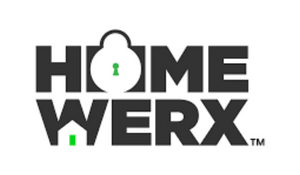
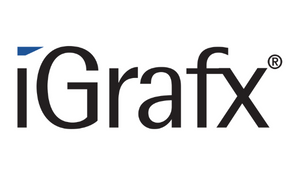
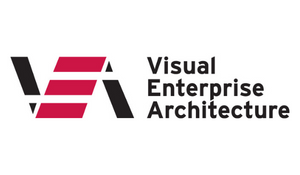
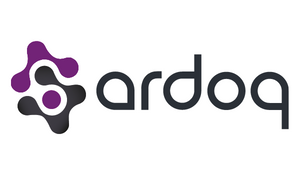
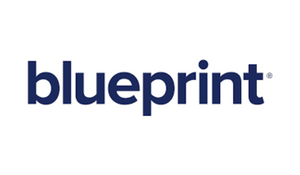
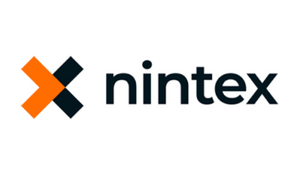
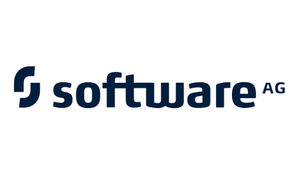

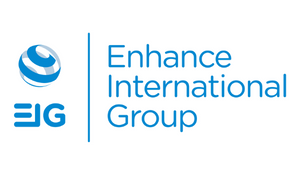
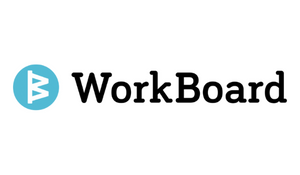
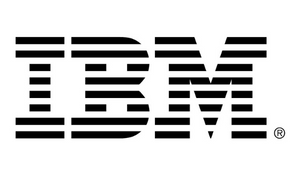
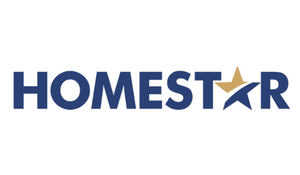

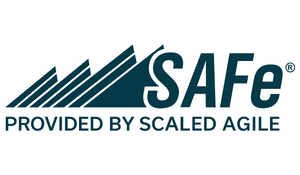
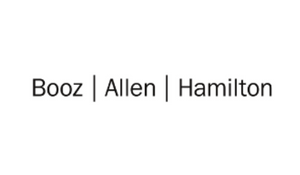
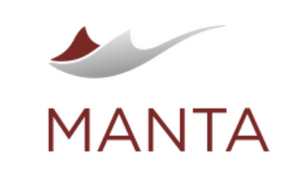

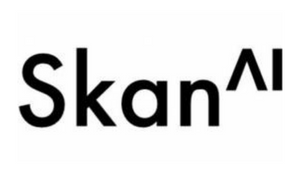

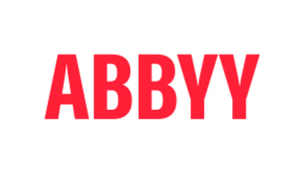

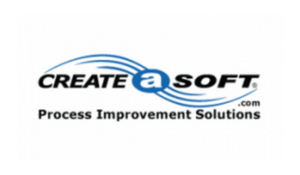
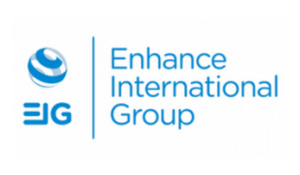
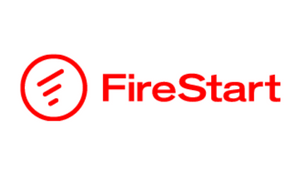

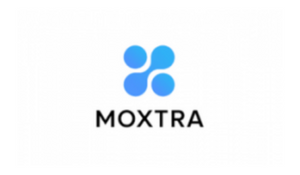
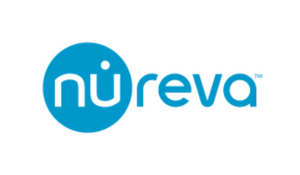
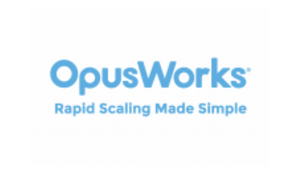
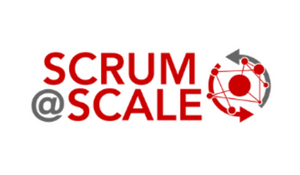
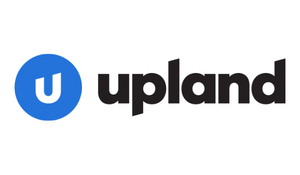
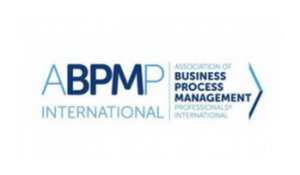
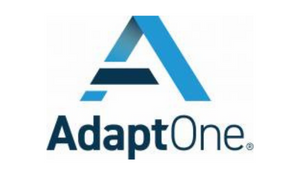
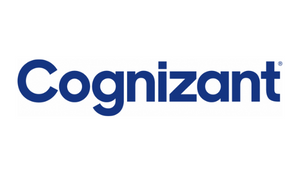
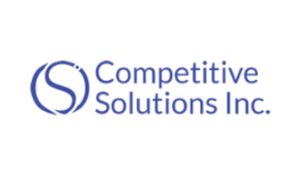
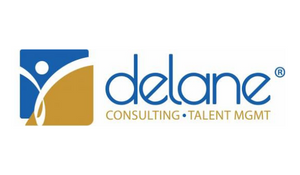

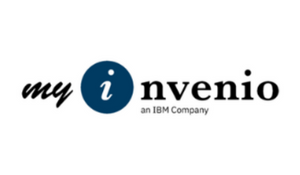
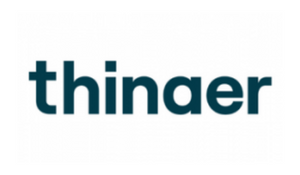
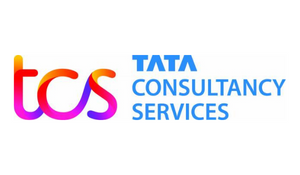
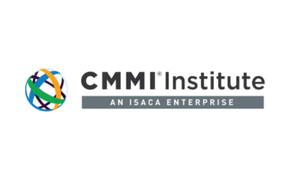
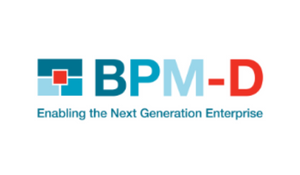

Courtesy of K&L Gates's Olivia Byrne, below is a transcript of his speaking session on 'Economic Incentives' to Build a Thriving Enterprise that took place at IT Infrastructure & Cloud Strategies Live.


Session Information:
Economic Incentives
Session Transcript:
Excited of our next guest, who's coming directly today from Washington, DC, to share her expertise with us. I'm talking about Olivia Burns, who is a partner in the Washington, DC Officer, and a member of ... Gates, real estate investment, development, sports, and finance group.
Olivia is a leading member of the firm's US economic incentives practice, along with the real estate and public finance practices in the Washington DC office. She has successfully obtained significant economic incentives for clients on a national basis, and has extensive experience drafting legislation for economic incentives and tax related issues.
Her practice involves site location for many different industries, namely: Technology, broadcasting, distribution centers, fulfillment centers, data centers, professional sports stadiums, and arenas, practice fields, wood based products, and biofuels, industrial manufacturing, food processing, outer parts and components, as well as financial services, entertainment, facilities, and hotels. She covers the entire gamut of cross industry. Like most of you in our audience today represent.
She and her team represent inbound companies from abroad, including Asia, Europe, and Canada, as well as US companies relocating or the signage or remain in place and expand. So, ladies and gentlemen, I'm gonna leave you in the capable hands and leadership of leaving Burns. I'm very excited about your presentation. Thank you for taking the time to share your expertise with us. We'll leave it.
Thank you.
Great. Well, good afternoon, everybody.
We're excited to talk to you about economic incentives and site location, whether you are abroad and looking at coming to the US, or you're in the US and looking at expanding or moving somewhere else within United States for your facilities.
Next slide, please.
Next slide. Sorry about that.
There we go.
Great, So when do you begin?
if you're interested in obtaining incentives and you want to maximize your incentives in the US, when do you begin the process?
I'm always asked this question, and this is probably the most important thing you'll learn from me talking today is this particular slide, although it looks so simple, it's not really so simple.
You want to try to start working on economic incentives in the US as early as possible. You particularly want to do that before you sign a purchase agreement or a lease.
If I frequently will, unfortunately, we will get Paul's saying, I just signed the purchase agreement or I just executed the lease landscape going on incentives. At that point, you have lost your leverage, and it's probably too late to get many, many incentives.
You may qualify for some, but you will lose the benefit of many incentives you sort of qualify for.
Next slide, please.
So, let's talk about what projects qualify for incentives. In the United States, I've listed some, there's many others.
Just to give you an idea, so many of you are probably interested in data centers, definitely qualify, And it will vary from state to State manufacturing facilities.
New headquarters projects, mergers and acquisitions, can result in new sites as well as expansions, equipment, purchases. We also work with mixed use projects, relocation, and modernization projects. All of those can qualify for economic incentives. Throughout the United States, we worked throughout the United States on a national basis. No. New slide, please.
So the next question I'm asked is, well, what companies can qualify? What types of industries can qualify? Do I qualify for incentives? Just, we're talking on a general basis.
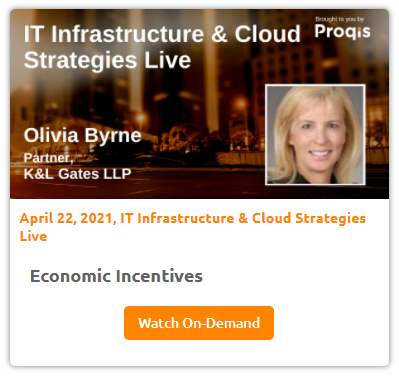 So I gave you a slide showing many different types of industries that we work with or that qualifies, everything from aerospace, automotive, technology, semiconductor plants, as well as, of course, data centers, and then heavy manufacturing, whether it's paper mills, auto suppliers, or others that are creating, I've put equipment in manufacturing, facilities. All of those can qualify for new for incentives, as well as an Office headquarters.
So I gave you a slide showing many different types of industries that we work with or that qualifies, everything from aerospace, automotive, technology, semiconductor plants, as well as, of course, data centers, and then heavy manufacturing, whether it's paper mills, auto suppliers, or others that are creating, I've put equipment in manufacturing, facilities. All of those can qualify for new for incentives, as well as an Office headquarters.
I have a picture of an office on the slide, so those, those can qualify as well, even though they're not manufacturing anything, but it is a new headquarters project. So those, we've worked with many of those as well. This new slide, please.
These are the states we've worked a lot in. There's, there's, there's other states, of course, that you can see, a wide range of states, and I wanted to show you this, because each state has different requirements and provides slightly different incentives and has slightly different processes. So it's really important that you understand in the particular state that you're working on, what the process is, what incentives are available, who can qualify, how much can you qualify? And how does the process work, And what's the timing on their process, and how do you file the applications? Like, some states have requirements that you really should be filing. The applications for incentives prior to signing the purchase agreement, such as Tennessee, likes to see that done, or other states, are not, as particular with regard to that. Next slide, please.
So, the economic incentives can also be used. We frequently, we work with companies abroad, coming into the US, They would like their manufacturing facilities or data centers to qualify for economic incentives.
Which, which is great, though, they will be, as long as they're creating a lot of jobs, they will be welcomed into the states, typically, that we're applying to, and then they can establish their new business, Or they could also be just expanding a business that they already have in the US, and still receive economic incentives.
Ms., next slide, please.
So, economic incentives can be for, as we talked about, for companies coming in, from Asia, Australia, Europe, Middle East, or those expanding in the North in North America, or coming in from South America.
We've worked with many publicly traded companies, as well as private companies does not matter, US Trade Associations, and also, global funds.
Next slide, please.
So, then, another question you might be thinking is, OK, I qualify, I'm expanding and creating jobs.
What kind of incentives might I receive in the United States? In a current, it will really depend on your particular factual circumstance and which States that you're interested in going to. But I just put up a couple of examples.
So you can see, we go after both, What's called, Statutory incentives, and discretionary incentives.
So statutory is kind of, by, right, statute discretionary, would mean, as it says, it's at the discretion of the state, or county, that, you could get additional incentives.
Some of the examples are, cash grants, tax abatements, tax credits, infrastructure we frequently get.
We can have a large amount of incentives coming in from help with the infrastructure, everything from roads, sewers, sewer lines, all of that. For some of our projects lianna, sometimes we're able to obtain free land for our client for their manufacturing facilities in the US, depending on the state.
Again, that's more discretionary, that's statutory, pass right down. There's also utility rate incentives that you should be aware of, people forget, that that's an option for many projects.
As well as job training and job training credit. Some of the states have gotten quite creative with job training. And we were on a tour for client coming in from Asia, last week in Ohio. And they actually now created a van, A big, huge bus fan that will pull up in front of the corporation.
 And that is done by the state, and they will interview potential candidates for your jobs, and screen them right outside your building, and do that to help the companies coming in from abroad or from another state, to help provide the labor they need for these facilities. So, they've gotten quite creative in the US in that area.
And that is done by the state, and they will interview potential candidates for your jobs, and screen them right outside your building, and do that to help the companies coming in from abroad or from another state, to help provide the labor they need for these facilities. So, they've gotten quite creative in the US in that area.
Next slide, please.
Have you, when you are trying to decide where to go, It's, it's important to have to talk with state and local officials, we always talk with them, look at what you're, what the clients are looking for in terms of a site, and it's also helpful. Typically, if you are looking at more than one state, to let them know that this is kind of a competitive process.
And many times we are offered sites by states and counties without a real estate broker being involved.
Because they prefer to work directly with us and our clients so that there's not a brokerage fee involved, so that they can work directly with a client.
Next slide, please.
So, then, the other thing, what you want to ask, What are the cities and the states and the counties looking at?
Like, how do I know that my project will be a good fit, that I'll be able to get the maximum incentives by doing my project in this state? So, what are they looking at?
They're going to be looking number-one, typically at your job creation and retention through your jobs. And let's say you are moving from Pennsylvania to Virginia. You already have employees in Pennsylvania, but you're moving them to Virginia. A lot of times I'm told those don't count by my client, but they actually do count. Because those jobs, even though you already had them hired in Pennsylvania, you are moving them to Virginia, so they are new jobs for Virginia. So we can make sure all of those those count brand-new project to help maximize your incentives.
They also look at what your capital investment is. What's the cost of the building your FF binnie, what kind of capital expenditures will you be putting into your project?
Another consideration is what's the average annual wage jobs is $30 an hour or is it a higher paying job that you'll be having?
Also, will you be providing additional benefits for the employees?
They will sometimes look at the community impact of your project.
Like, what what is your project doing for the community? Then, Do you need job training, or will you be training some of their local residents in new areas so that they will be able to work at your plant, your facility, or your data?
Oh, those are important points for the, counties, cities, and states in the US. Next slide, please.
So, how do you do this?
It's important, we, we follow a particular process for our clients, in terms of how we put this together, and I'll go into that in the slides, the following slides, There's There's different areas that we work in, and each, each project is different. I can say that.
next slide, please.
So initially, how do you get started, let's say now you know your project qualifies. You think the county or city will be interested, You're creating a lot of jobs, you've got you have capital expenditure, but you don't know which state to go to.
You don't know where you're going to receive the best incentive, and also where are you going to have the labor supply that you need for your particular jobs?
That's important, as well, being able to have the necessary labor supply to fulfill the requirements you have for your labor force.
So we normally do like an initial review with a client and help suggest several states that might work best for the project, considering that, as well as other factors as well.
Then we initiate conversations.
We bid our deals out and negotiate with the local communities, as well as the county and the state, and finally, we select the location for the project.
Once we've done that, we begin negotiations on the incentives and the due diligence process.
It's really important that you negotiate.
There's a performance agreement with the state or the county. And although there's many different names, it could be an MOU. It could be a performance agreement.
It's it's really kind of the same thing with a lot of different names in a lot of different states.
It's very important that you negotiate that agreement carefully because that's the agreement you're going to have to live with the next 3 or 5 years. And you want to make sure that no matter what happens, you have yourself guarded as much as possible. Down the road, as you continue to expand or your company continues to grow or if there's a rainy day that you are protected for that circumstance as well.
Next slide, please.
So, what are some of the areas that our clients look at, deciding on which site they're going to go to? I thought this might be of interest to you.
Obviously, we look at the economic incentives, and who's going to give them the most incentives. But that's not the only thing that they look at.
They also look at what states are going to be tech friendly to our business. You know, our clients that have a great business client. That are going to be welcoming, welcoming them.
They look at, many of them need a large number of acres. So you can't necessarily go in the middle of New York City for that, obviously.
So we have to look at other locations.
They'll look at the electrical providers, power capacity, special zoning, sometimes, our clients that have manufacturers might hit certain noise levels that might exceed or they certain height limits that are beyond what's allowed, from a zoning point of view, is we have to look at all of those factors.
We look at the risk factors, are you in an area where there might be a hurricane, earthquake?
Led planes, All of that tornadoes, they look at that in terms of their facility, They wanna look at water and sewer provider capacity, as well as particular interest in the particular site, those are just a few of the things that we look at, who are the site, Next slide, please.
D, we also look at to make sure that it's an attractive regulatory and tax regime there.
There's, like we talked about.
There's availability of abundant, local, supply for for various facilities, if they need feedstock, there's accessible utilities, that's important as well, and that the workforce in the area is skilled enough.
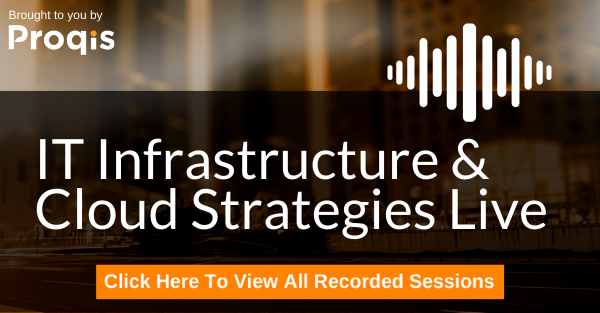 Then, if perhaps, you're looking at that, frequently, our clients will also look at, what are the local universities, colleges, and community colleges in a 35 mile radius around where the facility will be.
Then, if perhaps, you're looking at that, frequently, our clients will also look at, what are the local universities, colleges, and community colleges in a 35 mile radius around where the facility will be.
Sometimes they want to work with them to help train there future employees. I know Volkswagen did a deal with local college in Tennessee to help train. I spent a lot of money on that to help train employees for their plant in Tennessee and Chattanooga. So that's becoming more common as well.
Next slide, please.
In terms of the actual site that we're looking at. Whether you're going to build from the ground up, or you're buying a building that's already there, and you're going to convert it to, Let's say you're buying an old plant, You're gonna read it as a manufacturing facility, or a distribution center, or fulfillment center for your project.
These are some of the things that you wanna look at to be careful, that you're selecting the right building, or the right site.
We looked at everything from environmental, do, perhaps a phase one, or Phase two, if necessary, to make sure the site isn't contaminated. If it does have some issues, what would the cost be to remediate that site as it might? If it's near a city, it might have some issues, I put as well, really careful to look at that.
You want to look at the topography to see if that will work for a particular project.
Is it a wetlands, area geotechnical? Like? what's the consistency of the soil? If it's like a high impact, manufacturing facility, super important to make sure that if there's going to be a lot of vibrations, that that can be handled by the soil, that will be underneath the building.
Are there endangered species? Whether it's flowers and birds are fat around your facility that we need to worry about, what's the zoning?
Is this at site pad ready? Meaning, they've already put the infrastructure in and you're kind of ready to go, that can be important.
If you have tight timeline, then what are some of the setbacks and height limitations for the particular site that you're looking at?
So an important factor when you're looking at these sites, we asked, Great upfront, is What is your time? Do you need to be, does your plan, is this on a tight timeline?
Do you need to move quickly and get your site because let's say you already have contracts from automobile companies, and you just need to fulfill them, and you have a really tight timeline. Which happens.
Then we know we need to find a pad ready site if you're going to be billed.
If your timeline is even tighter than that, or you can't build. Then we gotta find a building that we can convert and make it so that you could use it as a facility.
And that, that's another consideration.
So all those things are really important to go with the timing for your particular facility, whether it's a data center, manufacturing facility or a stadium type project.
Next slide, please.
These are some of the issues that we talked about a few more. These are a few little bit more of details for you. Like you also want to look at probably fiber optic cables.
Um, communication capabilities.
What about stormwater? What about the roadway?
Is there an egress, is there an ingress, egress rail, or there rail line options? Let's say you want to go somewhere and you need an option: you need a rail and there's a rail line that's near But you need a rail spur to be able to be able to use it for your facility.
We've often been able to give, get the local community to give us a rail spur for the projects, if there were creating enough jobs and they're interested in and not in our projects.
What does the local community support for your project and what's the local government support as well?
Also, what our future opportunities.
Let's say, you want to build, this is phase one for your facility, your manufacturing facility, but you're thinking, you might want to do a phase two and Phase three, we get that a lot. That's really important.
When selecting a site, we, then, you need to make sure that the site you're selecting has an adjacent site that you can buy or have an option of purchase or a Right of first refusal so that you're not landlocked when you need to expand.
And that's not an infrequent request that we got, or clients looking for new sites for their facilities.
Next slide, please.
So, one thing to know, and you may or may not know this, but some states are particularly attractive, particular type of industries are really looking to attract particular type of industries more than other states. And these are, this is a very small example.
We could go on for pages with this, but as you probably know, Virginia has huge draw in ashburn, in loudon or data centers.
Utah particularly likes Aerospace or Arizona semi, many semite large semiconductor fabs are there, Tennessee and Texas, particularly like manufacturing. Alabama seems to be attracting a lot of the auto part manufacturing clients as well as others, Europe, a lot of distribution centers.
this is just to give you a little bit of an idea of that different states can attract different types of businesses or be particularly interested in particular types of businesses.
And when they are, that means usually more incentives for you and your company because they're particularly interested in your type of technology or your type of business. So that's, that's why that's important to you.
Next slide, please.
So what about data centers? As we just talked about as you probably know, Regina is the location in the US, was the largest assemblage of data centers in the world.
Um, Virginia alone and we've worked on many data center projects in northern Virginia as well as on the eastern side of Virginia. There's over 100 data centers with which total more than thirteen point five million square feet of data centers in northern Virginia right now.
In fact 25% of the US hyperscale data centers are located in northern Virginia, outside of Washington, DC.
70% of the Internet IV traffic is either faded or pass through Loudon County or ashburn.
And because of that, there's generous state, and local incentives in Virginia, poor data centers come in there. It's a very we've worked through a lot. It's a very friendly business environment.
The, another thing that's attractive to our clients, there's a low chance of a natural disaster there.
Unlike some other states, which they, they prefer Virginia due to that, and there's also affordable electric power water in wastewater removal in northern Virginia as well.
And there's many other states now as well that are interested in attracting data centers.
Next slide, please.
What about distribution centers? These are some examples of where distribution centers are going.
And they're Atlanta, Chicago, Dallas, Detroit, Houston, just a few few selected locations where But, they're really, we're working on a lot of distribution centers.
As you can imagine, with all the internet now, retail of retail.
.png?width=742&name=Screenshot%20(4).png) The distribution center, there's a lot of distribution centers going up, or buildings being converted. Some clients are converting old malls into to distribution centers or fulfillment centers, if there's not enough buildings out there that are available, and they don't have time for constructing new buildings.
The distribution center, there's a lot of distribution centers going up, or buildings being converted. Some clients are converting old malls into to distribution centers or fulfillment centers, if there's not enough buildings out there that are available, and they don't have time for constructing new buildings.
Next slide, please.
Sorry, next. Yeah, there you go. Things. So, what about manufacturing? Manufacturing facilities are thriving in the US right now really?
I think our industrial real estate is really, it's been said, that's the way out of the way out of the recession in United States and so it is definitely thriving.
In some states, it's definitely a seller's market for those that have buildings for sale, for manufacturing, which many is surprising to many people, but that's the case in many states. So, just to give you an idea of a small facility versus mid-size large size, some of the areas where there's a lot of manufacturing facilities going, but we're seeing it all over, really, just all over.
And it's sometimes, it's a race to find the building with the right height, ceiling height limitations, and the right acreage, and the right zoning for our clients, so that they can meet their time.
Next slide, please.
So I'm frequently asked, what about the FAFSA?
Coven is here? Are they still giving out incentives? What's happened as a result of being here? I can tell you that, because economic incentives are spurring job development and creating furthering creation of new jobs. We've seen no slowdown in fact, an increase of those coming and trying to receive and receiving incentives during the process. So that has not held us back at all.
And some of the, you know, concerns have been that there has been gather government mandated closure, supply chain challenges, corporate cost cutting, and social distancing. So a lot of times, these incentives have been able to make up the difference for companies so they can go forward and continue, particularly in the manufacturing distribution of moment and data center arena, as they can keep going and keep growing during coven.
Next slide, please.
Data centers, they have a lot of data centers.
As you can imagine, there, demand has increased with all the shopping with the internet and so as well as the need with people working at home.
As you know, they've forced data centers to increase efficiency, speed and security was ideal such as modular construction and with pre crep.
He pre-fabricated walls, companies can purchase more capable services, servers with this decreased rent by using the modular construction. So they looked at different ways to create data centers in light of what has happened during ....
Next slide, please.
So there's been a surge, Like we're talking about a surge in Internet traffic.
So that's created the need for more data centers. There's more Zoom calls. There's more telemedicine, or online shopping based data usage. More gaming online, more movies online, or Netflix. All of that leads to more data centers.
Next slide, please.
So the US, for manufacturing, is the largest in the world if we produce 18.2% of the world's goods right now, more than the entire economic output of Canada, Korea, or Mexico.
Just behind is China.
With its low-cost factories, they manufacture about 17 point 6% of the world's products.
So Enduring coven particular products were, as you know, we're in high demand.
Then also, Required new facilities for manufacturing different things.
Everything from hand sanitizers, ventilators PV equipment, Um, force companies to set up new facilities, or to convert those that they had, to supply different product.
Next slide, please.
Um, the, um, because manufacturing has been expanding, there has been, it seems, the demand for re-assuring facilities back to the US. So, there's been advanced manufacturing technology as well, such as three-d. printing and, or NexGen manufacturing equipment.
So they've been accelerating with US manufacturing investment and restoring efforts. In the US.
We've seen many companies from VOD now decide to put there.
We're more advanced into the US in the last couple of years, which is really, really interesting.
Next slide, please.
A lot of our clients, as you could imagine, from everything, from distribution centers to manufacturing, facilities, and auto, plants are all using robotics now in their facilities, which is reducing the number the amount of labor they need is creating efficiencies for them as well.
Next slide, please.
You want to make sure, when you go for it and you obtain, let's say you receive your maximum incentive. You want to make sure you have an attorney to review and negotiate with the State city. You want to make sure they review the incentive agreements. We always check the clawback provisions. How long do they last, Buddha, they apply to and what percentage would they apply to? You want to look at first measure of clauses is covert considered force measure in your contract, or is it not? It probably should be, if not. What about future endowments? All of those things are things that you should look at and look at definitions and finding issues with these moves, I can't tell you how important that is. That will prevent you from getting into trouble years down down the road by following this advice. Next slide, please.
Some of the other issues you can get into our audit concerns. Confidentiality, are they allowed to talk to the press? Who's allowed to talk to the press? You probably want to keep your project very quiet, because you don't want to lose employees that you currently have it here, you're going to be moving. That's an issue we work with, on a weekly basis. So you want to be careful with confidentiality agreements? What about post compliance reporting? All of that? What about landlord tenant issues? If you guys landlord tenant with, who gets credit for the new jobs? And who gets credit for the capital expenditures with the incentives, these are some of the more complex issues we deal with on a weekly basis with our agreements with the states, counties or cities.
Next slide, please.
You want to make sure you understand forest mature and that is you've taken care of pandemics and the grunt and virus in your contracts. You want to make sure that you're not a lot of people have looked at the issue. They had to hire so many new employees that was part of their agreements.
And if they had not had a lawyer review it and didn't have coronavirus as a force mature, they could get into issues and get into clawbacks if they could not continue to hire new employees during the pandemic.
Next slide please.
So, there's multiple phases to your project.
Um, that we've, We've only talked about, really economic incentives, and a little bit about real estate.
Other issues, though, if there was more time, we would talk about finance, corporate and commercial, like where do you set up your entity? Which state do you set up your LLC, which, when, where should you qualify to do business? What about tax and accounting roles? What about lobbying, public policy? We talked about site selection, a little bit, zoning attorney, that as well as environmental.
So, really spend a lot of time on each of these issues for our site selection decisions. Next slide, please.
one last thing, is Opportunity Zones. You may have heard about that, or read about that.
They had slowed down, quite a bit, the use of them during kogod, but they're coming back now, particularly with real estate projects. So, if you select a site, you may want to ask, is it an opportunity, if you have an interest in that? Because you might be able to receive or equity into your project at a lower cost than if it wasn't in an opportunity zone.
 So, just wanted to mention that.
So, just wanted to mention that.
Because investors will receive tax benefits for investing into one project, and send an opportunity, is assuming it meets all the other environments.
In that would be a whole nother topic, but I just wanted to mention that. Next slide, please.
So, yeah, the many projects did stop, but we're seeing them coming back, particularly the real estate projects.
Not as much support for projects right now.
But that, that's something I also want to mention if you are coming in from abroad and well being green, bringing projects products to America.
The end, you'll be shipping as part of the equipment to manufacture your products. You also wanna look to see, if your site is a federal Trade zone or not.
You may want to look into that for duty deferral purposes or if it's you're shipping your products to the end right back out of the country, but also the elimination of the duties for your projects.
So, just, that's another thing you want to look at. Next slide, please.
Good, pretty much on time.
Thank you.
Olivia, that is fantastic, what a great view of the area that I think that most of our audience does not have a very good grasp on, and it's so important. I say this loosely because I'm, there are so many people with us that may have expertise in this area. But, I thinking for the larger portion of our audience, they don't have the insights that you have just share here, incredibly useful, and practical insights. Tamara, I'm gonna ask you to stop sharing the screen right now, and I'm gonna come back on with, with Olivia for the, for the Q&A. So there are a number of themes, Olivia, first of all, lots of comments and thank you for for the presentation.
Very insightful, very interesting to see the different aspects that that some of our practitioners are not normally aware of.
Now, for those who, in the audience, who knew more about the topic, there are some warning signs of questions. A lot of the general questions you answer very well during your presentation. So I'm skipping for those. I'm going to ask some very specific questions on that. I, at least I did not see in your presentation explicitly, company size.
How big do you have to be to be part of the conversation, because some of the commentary and assumptions that, well, you know, I'm too small to have a meeting with someone in government. You start talking about the about incentives, right? So, what size of companies, the number of employees, revenue level, what's the size of the broad infrastructure project itself, At what point, it becomes, you know, you become a player that, that could be eligible for this type of benefits?
Yeah, so that's, that's a great question. So, remember, there's two main things. They look at number of jobs and capital investment.
So if your project is capital intensive like, we've done quite a few refineries, biorefineries, where there is heavy capital investment. Meaning over $250 million, then, they qualify for very large incentives. And they might only have 24 new employees or employees working there. But they had a heavy capital expenditures. So they allowed the lower jaw new job count as a result. So there's, there's there's not, like anyone answer where other other Headquarters projects, so they're not going to have a huge capital expenditure, but maybe you're going to hire 55 new employees.
So you're able to qualify, because generally you and quite a few states, you get a lot more benefit if you hire at least 50 employees.
And if you're doing a headquarters project and you're only hiring 10 employees, it's unlikely in most states and won't see everywhere, but most states that you're really going to be getting many incentives. Again, it's driven by the state. That kind of gives you a flavor that you look and you look at, both capitalists managers and jobs, really, depending on the state, if that's helpful.
That's very helpful. You mention, you know, Of course, like Most Serving, it depends on a number of factors, but you provide us some some guidelines there. There were interesting. I think in terms of number of employees and and the maybe some level of investment that that's very helpful.
The other question that has the surface has to do with outbound services, if you will. I know this, the presentation that you had here was a bit US centric, which is probably about 70% of our audience today. But we have about 30%, that is outside of class. And the question is, whether the services can be provided to a foreign organization coming to the US or the other way around For any organization that's maybe a US based organization looking to go to a free trade zones abroad and doing no, establishing their infrastructure abroad.
Yeah, so I'm glad they asked that.
So, yeah, large percentage of our clients are from abroad, from either Asia or Europe coming into the US to bring their facility, their factories. And yeah, they absolutely do qualify. Typically, we have to set up a company of either an LLC maybe in Delaware somewhere and get them set up, whether they're coming in from Taiwan, Korea, Germany, wherever. We have a company set up in the US to be able to receive the incentives for them. So there's a procedure you have to follow, but they absolutely qualified.
In fact, that's encouraged and is, dates are very excited about the opportunity of bringing business or new business into the United States from abroad, so that's highly encouraged.
And then there's also, you're talking about going the other direction. So let's say someone wants to go to abroad.
 That would not, I don't have specifics on that, because we have 56 offices around the world, so those offices will handle those issues.
That would not, I don't have specifics on that, because we have 56 offices around the world, so those offices will handle those issues.
But if you're going into, Wherever it is, whether it's Asia or Europe, there's different things that I know those clients are looking at to help them set up their facilities.
That we would work with our European or Asian offices on that, that's fantastic, India, and the one of the comments that you just made there, about your offices outside of the United States. That was part of the commentary, as, Well, maybe you can explore that a little bit further for us. Tell us a little bit more about your, your firm, and the, the, you know, how many employees you have. And you mention offices abroad, which is probably more than what our, our, our audience expected, if you could give you some general guidance on the size of your core of the forum and the presence that you have.
Yeah, thank you for asking.
So, I have a partner at a young age and I spearhead a run the economic development site, location practice in the US.
And we have offices like I talked about all over the world, everywhere from Beijing, tokio, Australia, South America, all over Europe, and Korea.
We have a nice office in Seoul, Korea, and so with that, we're, I think we're the ninth or 10th largest law firm in the world.
And from that is fairly helpful because we do have a lot of clients coming from Asia and on Korea or Taiwan, and because of that, it's very helpful, do you have other colleagues in my office that can help interpret. Because there is, there are cultural differences, and there's, some of them speak foreign languages.
So, it's, you know, I have colleagues when I'm working with, are great and clients that will get on the line, and can also with conversations, if foreign languages are involved.
So, with that, and we have a large practice practice in this area, since we're able to help find the sites, and then bringing the legal and kind of, the business aspects to what people are.
Very well.
And you mention also during your presentation, that there is kind of a preparation before you decided to go into a location and, you know, bhagat aside or start hiring employees, You have to do some of the plane. Had a time, of course.
And I know that this will be one of those, it depends, answer is, but in general terms, laureus.
What does a typical timeline that you need to evaluate incentives? If you're, if you decide that I'm moving to a certain location, the United States as an example, I have a target location, or maybe before that, I don't know what my target location is. And I want to evaluate that, and I want, then, once I identify the target location, I want to prepare for exploring the incentives. What types of timelines you should be looking at in advance to start that process.
You should start as early as possible. Again, you must start before that lease or lawyer purchase agreement assign. I'm, so, for our process, we sent out what's fun, an intake sheet, like immediately to branch, depending on the particular, whether your data center manufacturing, they have different intake sheet. And look at that and evaluate that, and what, what your timing is.
In that process of receiving an intake sheet, can take a couple of weeks, we'll go through that material, then start discussing site locations. And then, again, put a timeline together from day one to the end and how we're going. And then, we back into all the steps, because it's most important to be able to reach that deadline that the client has.
So that timeline really helps us figure out, how much time do we have to find a site on And things like you talked about. Can we, can we do we have time to build? Or do we have to just find a building that's already existing?
And use that because we don't have time so all of those things are re-evaluating. It really varies and we have clients coming in right now saying they've got contracts they just need somewhere to manufacture so they can meet their contracts, and they don't give us a lot of time. We have to work with that. We have others that have maybe 12 months. Others that have 16 months. So I've seen all different sites a timeline.
But I would suggest that you start as early as possible with this process.
That's, that's very good guidance. And the last question here, we have here is a bit more of a curiosity question, kinda hotspots. In the United States right now, we in terms of this movement of businesses that you may appeal deserving. Of course, you know, I'm in San Antonio, just outside of Austin, Texas. Austin has been, boom. Boom. With corporate relocations. I can, probably think of, Right off the top. My head. HB an Oracle, Tesla, Apple, all, building significant significantly in the, in the Austin area. And the, you know, in nearby just curiosity, are there other hotspots around the country right now? There are kind of attracting that type of movement.
Yeah, that's a great question. Yeah, there's a lot of areas that are hotspots that weren't broken, generate. Now, Phoenix, Arizona, as big hotspot for technology, semiconductor companies, as well as others.
Then the Whole South for Manufacturing, in fact, in some states, they are so busy now, it's hard to find buildings over that are already built, ready to go, over 300,000 square feet. So, the south is just booming and the Industrial Area data centers, obviously, in Virginia, continue to grow, as well as in Indiana, Illinois. Then, all over distribution centers. Trying to find facilities, including Texas, your state.
We just did a large distribution center, and Texas, So the industrial world is booming. There's not really much written about that right now.
But we can tell you from our searches, for all these different types of buildings and locations, that it's, it's definitely boom.
Olivia, on behalf of our global audience, I want to say thank you for taking the time and sharing your expertise with us. Very practical insights, and incredibly useful insights for all of us, and we appreciate that.
OK, thank you very much, and we're going to turn our PowerPoint as a handout for anybody who didn't get to see them, so would like to review some of the information, and thank you very much.
That's fantastic, Very generous of you. Thank you, that, that ladies and gentlemen, Oliva Burn here with ... Gates. Wonderful presentation. Thank you very much. And that, this brings us to this final session, and they, of the IT Infrastructure and Cloud Strategist Live. I want to, first of all, thank all of you for being with us for this three day event.
All of you who are here in person, alive, and engage, and ask questions, which is fantastic, but also, those of you who are going to be watching these recordings and are going to be consuming this presentation via the recordings. Of course, we want to thank all of our speakers and global cross industry leaders for taking the time of their very busy schedules to share their expertise and insights with all of us.
If this goes without saying that none of this, what would happen without a great team behind the scenes and the great leader like Brian Raffle, who is our conference director who makes it all work in core enacting all of this great people and ideas to bring your world-class event. Also, ..., the CEO of ... Digital, for his vision and execution during times of uncertainty and rapid change.
.png?width=742&name=Screenshot%20(4).png) And for Lean, I X, our sponsor, who has made this possible, and accessible to all of you and no cost for their generosity and sponsorship.
And for Lean, I X, our sponsor, who has made this possible, and accessible to all of you and no cost for their generosity and sponsorship.
So we're deeply grateful to all of this great leaders and organizations who have made this happen.
I want to remind you that if you want to capture the benefits of being a register participant in our next event, make sure you register. We're have limited registration.
That's kept at 3000, and you have to register that by looking up beat those digital process automation, live, BT, OES digital process. Automation live. We have send links during the presentations. But if you have miss those links, just just do a search on that and you'll find the next conference that will take place, May 11th through 13th.
In the meantime, I'm going to post an update on today's presentations on LinkedIn undermining that Paris. So, please go there if you can. Add to the conversation, ask a question to the speakers. Thank them for sharing their wisdom, and engaging on that conversation post conference. The posting is going to be there, and you're gonna see what others have said. And I will post an update a little bit later on today. On behalf of the entire team approaches digital, we want to thank you again for being here with us, and we hope to see you on May 11th for 13 on digital process automation live wherever you are in the world. Have a great rest of your day, and have a great rest of your week.

 Olivia Byrne,
Olivia Byrne,
Partner,
K&L Gates.
I am a partner in the Washington D.C. office at K&L Gates LLP and a member of the firm’s Real Estate Investment, Development, and Finance group.
I also spearhead the firm's U.S. Economic Incentives practice along with the Real Estate and Public Finance practices in the Washington, D.C. office. Our team has successfully obtained economic incentives for clients on a national basis including the District of Columbia and has extensive experience drafting legislation for economic incentives. We represent clients in real estate projects relating to headquarters buildings, mixed use, retail, office, residential, manufacturing, warehouse, healthcare, hotels, restaurants, and sports arenas.
Our real estate practice also involves site location assistance for many different industries, namely technology, broadcasting, manufacturing, as well as industrial, sports, and entertainment facilities and hotels. The team and I represent inbound companies from abroad as well as U.S. companies relocating or deciding to remain in place and expand. Our proven track record demonstrates proposals to certain corporations such as manufacturing in excess of US$100 million dollars in economic incentives!
I served as lobbyist for The Advisory Board Company that won the “Game Changer Award” at the Washington Business Journal’s Best Real Estate Deal of the Year Awards in 2016.

View our schedule of industry leading free to attend virtual conferences. Each a premier gathering of industry thought leaders and experts sharing key solutions to current challenges.
View Schedule of EventsWelcome to BTOES Insights, the content portal for Business Transformation & Operational Excellence opinions, reports & news.
-------------------------------------------------------
Search for anything
Insights from the most progressive thought leaders delivered to your inbox.
Insights from the world's foremost thought leaders delivered to your inbox.
Being a hero is all about creating value for others. Please invite up to 5 people in your network to attend this premier virtual conference, and they will receive an invitation to attend.
If it’s easier for you, please enter your email address below, and click the button, and we will send you the invitation email that you can forward to relevant people in your network.
View our schedule of industry leading free to attend virtual conferences. Each a premier gathering of industry thought leaders and experts sharing key solutions to current challenges.
View Schedule of EventsWatch On-Demand Recording - Access all sessions from progressive thought leaders free of charge from our industry leading virtual conferences.
Watch On-Demand Recordings For FreeDelivered by the industry's most progressive thought leaders from the world's top brands. Start learning today!
View All Courses NowThe premier Business Transformation & Operational Excellence Conference. Watch sessions on-demand for free. Use code: BFH1120
Watch On-DemandInsights from the most progressive thought leaders delivered to your inbox.
Insights from the world's foremost thought leaders delivered to your inbox.
Being a hero is all about creating value for others. Please invite up to 5 people in your network to also access our newsletter. They will receive an invitation and an option to subscribe.
If it’s easier for you, please enter your email address below, and click the button, and we will send you the invitation email that you can forward to relevant people in your network.
Courtesy of Nintex Pty's Paul Hsu, below is a transcript of his speaking session on 'Improve employee productivity during and post-COVID by ...
Read this article about HP, Best Achievement in Operational Excellence to deliver Digital Transformation, selected by the independent judging panel, ...
Read this article about BMO Financial Group, one of our finalists, in the category Best Achievement in Operational Excellence to deliver Digital ...
Read this article about Cisco, one of our finalists, in the category Best Achievement of Operational Excellence in Internet, Education, Media & ...


